
For the second time, Würzburg chemistry professor Frank Würthner has received a prestigious award from the European Research Council: the ERC Advanced Grant is endowed with 2.5 million euros.
more

For the second time, Würzburg chemistry professor Frank Würthner has received a prestigious award from the European Research Council: the ERC Advanced Grant is endowed with 2.5 million euros.
more

How are digital technologies changing the way people perceive and process stories? A new research training group at the University of Würzburg will address this question.
more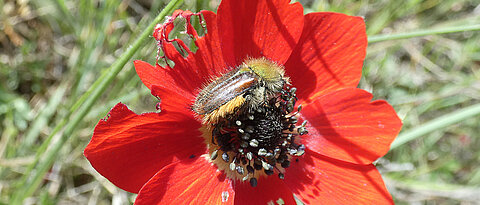
Hardly any insects can see the colour red. However, two beetle species from the Mediterranean region are an exception, as an international research team has discovered.
more
From the winter semester of 2025, the University of Würzburg will combine the humanities and artificial intelligence in a new Master's degree programme. This will open up new avenues of cultural research.
more
Since the start of the war in Ukraine, countries that are friendly with Russia have been exporting more military equipment to Russia - despite Western sanctions. This is shown by a recently published study.
more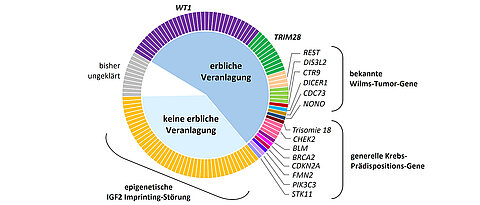
A research team at the University of Würzburg has gained new insights into the development of kidney tumors in young children. These enable a better risk assessment and could form the basis for targeted screening and improved early detection.
more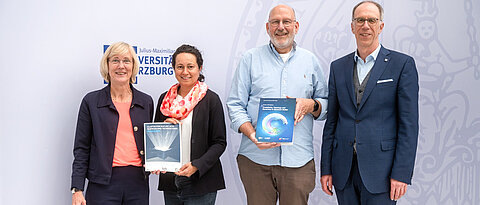
The University of Würzburg has secured funding for two Clusters of Excellence under the Excellence Strategy. This also means that it is now eligible to apply for University of Excellence status.
more
A research team from ct.qmat has detected optical quasiparticles on the surface of an antiferromagnetic quantum material for the very first time.The breakthrough results have been published in Nature Materials.
more
The University Board issued a statement on its position on the announced ‘Students for Palestine’ camp in Würzburg.
more
On April 13, 2029, the asteroid Apophis will fly past Earth. Researchers at the University of Würzburg are now developing a concept for two small satellites that will rendezvous with Apophis in space and collect photographs of it.
more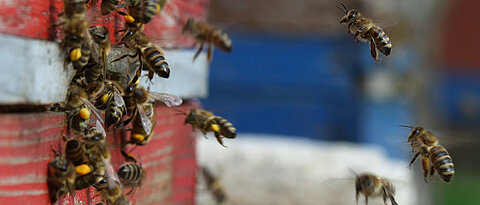
For honeybees to overwinter successfully, several factors must work together. Researchers at the University of Würzburg have now identified a crucial one: The more diverse the diet, the greater the chances of survival.
more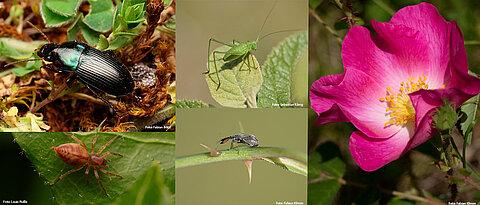
Shrub fringes on the edges of forests and fields protect animal species and have a positive effect on biodiversity: This was reported by a research team from the University of Würzburg.
more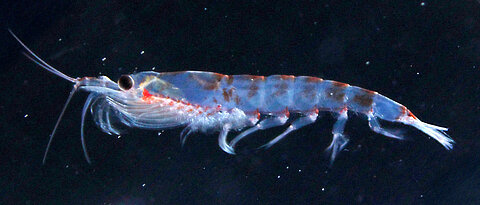
The behavior of Antarctic krill not only reacts to external environmental influences such as light or food. It also uses its internal clock to adapt to the extreme conditions of the polar environment.
more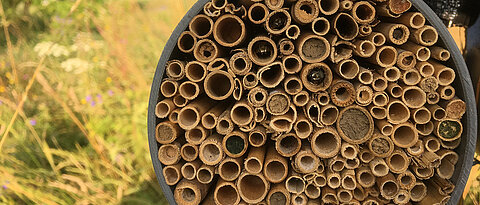
In a new study, researchers at the University of Würzburg are investigating the interaction of major global change drivers on insects.
more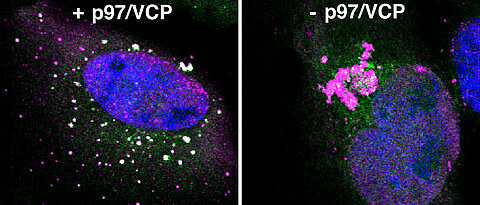
When the cellular waste disposal system goes on strike, this can have fatal consequences. A research team at the University of Würzburg has now identified a key player in this clean-up crew.
more